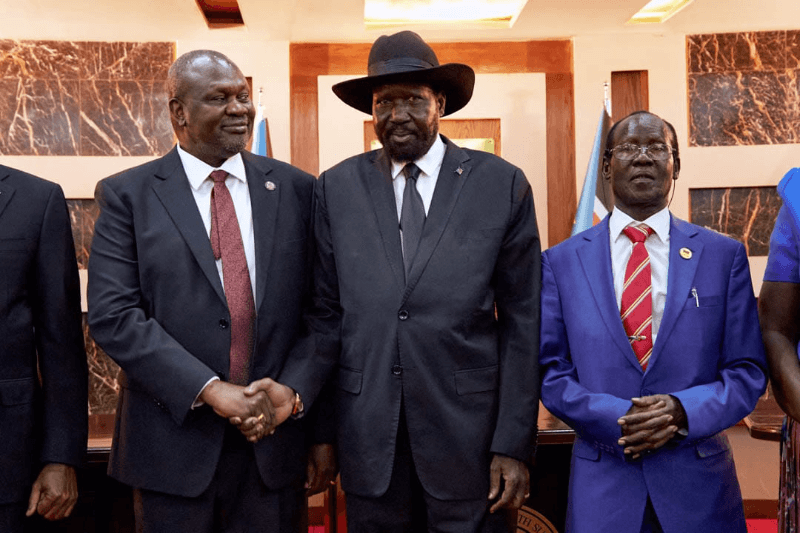Opposition groups urge the elimination of a recently approved legislation allowing the detention of people without an arrest warrant, therefore posing a significant obstacle for peace negotiations meant to help to resolve South Sudan‘s continuous conflict. Signing a proposed peace accord comes with this demand as a prerequisite.
Kenya has been holding high-level negotiations between South Sudanese government officials and rebel opposition organizations not included in the 2018 agreement since May, so ending a five-year civil conflict with millions of displaced people and about 400,000 dead. Nine million people live in the country, although violence still exists there notwithstanding the 2018 accord.
Representing the South Sudan Opposition Movement Alliance, Pagan Amum Okiech told the Associated Press on Tuesday night that signing any deal would be “meaningless” should the harsh National Security Act passed by parliament become legislation. Ahead of the first-ever election set for December 22, President Salva Kiir has to ratify the bill within 30 days for it to be operative.
“This law eliminates civic and political space, it violates the fundamental rights and liberties of South Sudanese citizens,” Amum said. “Under such a law, democracy or peace is impossible.”
Keep Reading
Edmund Yakani, executive director of the Community Empowerment for Progress Organization, likewise attacked the security measure, saying it “created a negative spirit for the negotiations.” Human Rights Watch has urged President Kiir to reject the measure, contending that it will compromise human rights and empower national security services with past record of violations.
Dubbed Tumaini, Swahili for hope, the peace negotiations have generated a draft agreement suggesting a lengthening of the transitional period and postponing of the forthcoming election. This extension would give time to complete the constitution, electoral rules, constituency borders, and create a united security force as suggested in the 2018 peace accord. Delaying the poll to guarantee a free and fair election has also been advised by certain Western envoys.
President Kiir, however, is adamant about having the poll in December and has attacked the envoys for implying a delay. The deadlock on the security bill and the election schedule still jeopardizes the delicate peace process and throws doubt on South Sudan’s route toward democracy and stability.

